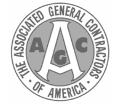Fire Extinguisher FAQs
How much do you know about your fire extinguisher? If you’ve never used it before, you may know less than you should. Having a good understanding of how your fire extinguisher works could be crucial when it comes time to use it to protect your building. Read on to find some potentially lifesaving fire extinguisher tips!
How many fire extinguishers should I have in my building?
While the exact number of fire extinguishers required for each building varies based on the hazard level of your building, as a general rule of thumb you have no more than 75ft of space between Class A fire extinguishers and no more than 50ft of space between Class B fire extinguishers.
Is fire extinguisher training mandatory?
According to the Code of Federal Regulations, every building that has fire extinguishers available for employee use must also provide training programs to teach employees how to use them. Even if fire extinguisher training weren’t required, it is one of the smartest things you can do as a business owner – giving your employees the skills and confidence they need to use fire extinguishers properly could save your building one day!
How often do I need fire extinguisher inspection?
On your own, you should inspect your fire extinguisher once a month to make sure there is no obvious damage to the extinguisher and to make sure the pressure is adequate (monthly fire extinguisher maintenance is easy – you can probably do it on your own!). In addition to having monthly self inspections, fire extinguishers must be inspected and tagged annually by a licensed fire protection services company and a fire extinguisher hydro test is required every 12 years.
Do commercial kitchens need a special fire extinguisher?
Just like commercial kitchens need special fire suppression systems, they also need their own fire extinguishers. Fires that commonly occur in commercial kitchen, such as grease fires, are referred to as Class K fire and require a special Class K fire extinguisher to knock them down and prevent reflash. Find out more about special hazard fire extinguishers here.
What fire extinguisher do I need to protect sensitive electronics?
Water fire extinguishers are usually enough to knock back most fires that commonly occur in office settings. But if your business relies on sensitive electronic equipment, such as computers or phones, all that water may do more damage than the fire itself! To protect electronics, you’ll need to use a clean agent fire such as a Cleanguard FE 36 or a Halotron I fire extinguisher.
- Halotron I – Halotron I discharges as a rapidly evaporating liquid that leaves no residue. It does not conduct electricity and is suitable to fight Class A, B and C fires.
- Cleanguard FE 36 – the Cleanguard FE 36 is quickly proving to be a suitable replacement for Halon 1211. The Cleanguard extinguisher has comparable performance and efficiency to Halon 1211 but is less toxic and has zero ozone depletion potential.
Knowing as much as you can about your fire extinguisher can be extremely beneficial when it comes time to use it. If you need fire extinguisher inspection or maintenance in the Houston, Texas area, call Kauffman Co today!
For more information, contact us online or call us now at (713) 893-1090.















